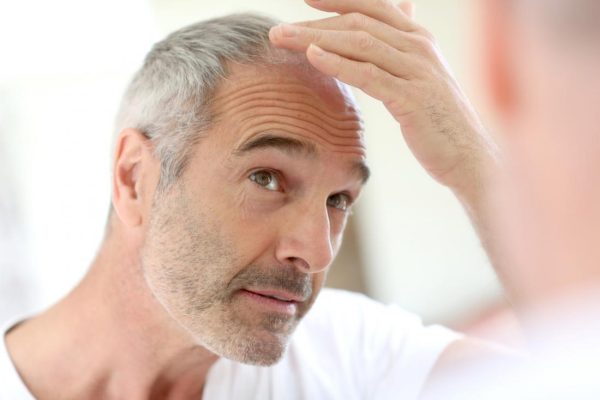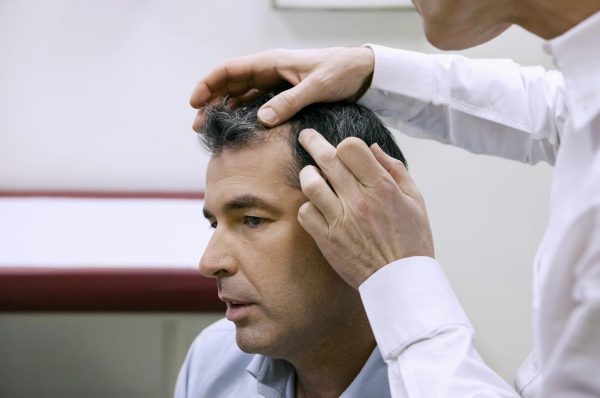Balding has always been an issue for a lot of men. So it is quite common that after a certain age they experience thinning, potentially leading to losing all the hair on their head. People suffering from this problem usually look for several solutions to treat baldness or try to stop it from spreading across their bodies.
However, not everyone succeeds in treating this condition despite all the efforts made, but there are a few ways you can minimize balding. So here are a few ways to minimize balding:
Seek Out Supplement Options
Supplements are a great way to strengthen your hair follicles and promote healthy growth. There is a plethora of supplements on the market, so consult your doctor or pharmacist if you have any questions about them. You can also purchase supplements over the counter at your local pharmacy or health food store.
While many benefits are associated with taking supplements, it’s important to remember that some people experience side effects when taking them too often or in large doses. So always talk with your doctor first before beginning any supplement regimen!
It’s essential to track how well your supplement regimen works by keeping track of your progress in a journal or charting data points such as weight changes over time under different circumstances. This is something you can show to your doctor if you need to. In addition, tracking your progress will allow you to see if your supplement regimen is working for you or if you have to make changes.
Follow a Healthy Diet

One of the most important things you can do to minimize your chances of balding is to have a healthy diet.
The vitamins, minerals, and nutrients in your diet are essential for keeping your hair strong and healthy. If you fall short of the daily quotas for these nutrients, your hair may become brittle, and breakage will occur more quickly.
A good diet can also help protect against other conditions that contribute to balding, such as stress. Surplus levels of stress can cause hair loss by increasing the level of cortisol in your body. Cortisol is a hormone that breaks down protein, which includes those necessary for hair growth. By eating healthy foods that contain essential amino acids like tryptophan, you can reduce the amount of cortisol in your body and keep those proteins intact.
Avoid Certain Hair Styling Products
Hair styling products can damage your hair, so it’s important to use ones free of chemicals and other additives. Also, avoid any product with alcohol in it as this is a drying agent that will make your skin dry out more and cause more flaking of the scalp skin. Sodium lauryl sulfate (SLS) is another ingredient you’ll want to avoid because it’s also a drying agent and may even cause allergic reactions in some people.
Parabens are another ingredient that should be avoided because they have been shown to cause cancer when absorbed into the body systemically through the scalp. So look for products without these chemicals listed on the label and any artificial dyes or phthalates; these last two ingredients are critical culprits for chemically damaged hair and balding heads.
Don’t Over-Wash Your Hair

You might be washing your hair too often. Using shampoo and conditioning products excessively can dry your scalp, contributing to hair loss. Instead, wash every other day at most, and use a gentle shampoo/conditioner combination (the words “gentle” or “for sensitive skin” should appear on the bottle). Massage and rinse the products well, but don’t scrub too vigorously.
Avoid products that contain sodium laurel sulfate (SLS), as stated before. Also, avoid alcohol-based shampoos because they dry out the scalp more so than others; if you want extra cleaning power on a particularly oily day, try using shampoos that are made to help with oily hair! Mineral oil is another no-no: It coats the hair shafts with goopy grease that locks out moisture and nutrients needed for healthy growth.
Seek Help As Soon As You Notice It
If you’re noticing your hair thinning or falling out, it’s essential to be proactive. The longer you wait to address the issue, the more difficult it could be to stop your hair loss.
That’s because when your hair follicles are still healthy and producing new hairs, they will continue to do so – even if you have a genetic predisposition to baldness. But once those follicles become damaged (which can happen from stress, poor nutrition, and other factors), they’ll stop producing new hairs entirely and won’t start again unless you take action.
The good news is that there are a ton of things you can do to keep your hair healthy and minimize balding, such as visiting a site like hshairclinic.co.uk to find out more information on hair treatments,
See the doctor

If you find that your hair is thinning and nothing you do is working, it’s time to check in with the doctor. Your doctor can look at your family and medical history to identify any potential causes of hair loss. They may wish to test for insulin resistance, thyroid issues, and other conditions that could contribute to the problem.
If nothing is found, your doctor may be able to prescribe medications that can slow down or stop further hair loss. In these cases, medication might help improve your overall health while also helping prevent further hair loss due to hormonal fluctuations during certain times of the year. Your doctor can also point you to a specialist who can help you if your hair loss has gone too far. However, prevention is the aim, so don’t ignore the signs; consult your doctor as soon as you notice any.
Conclusion
When it comes to minimizing hair loss, there’s no way to guarantee success. However, the sooner you take action, the better your chances of staving off baldness. So, if you’re in your twenties or thirties and already seeing signs of thinning hair, don’t wait another day to start making changes. By following these tips and speaking with a doctor about possible medication options, you may be able to slow down the process or even reverse it.




